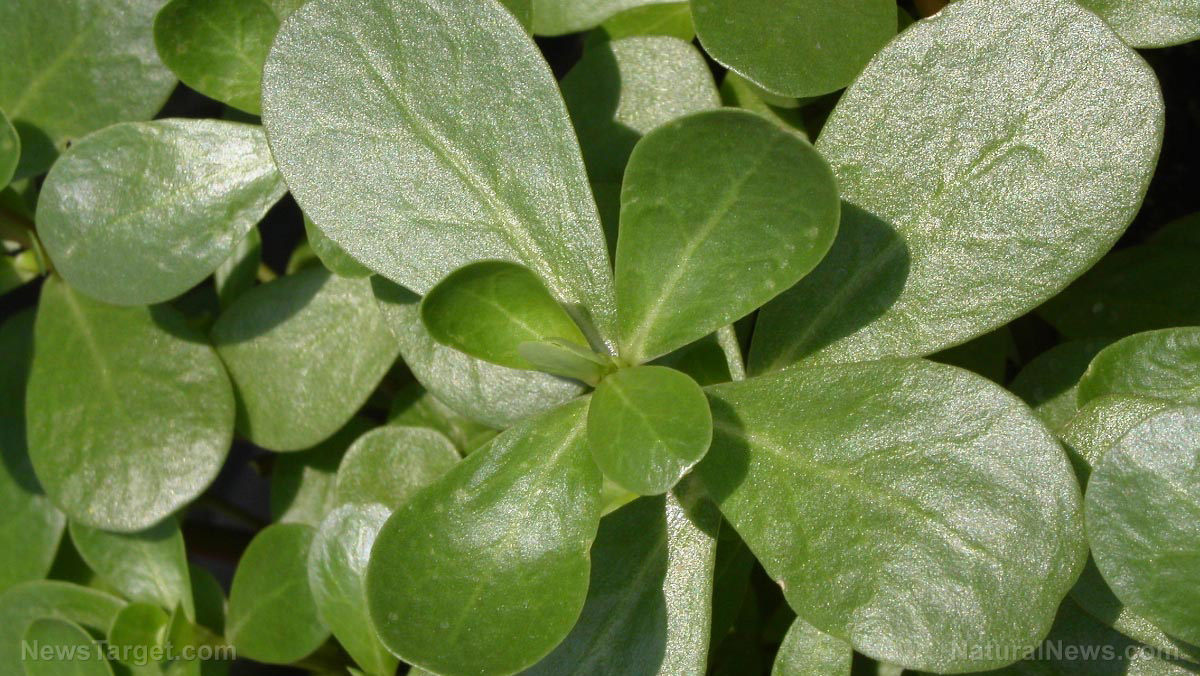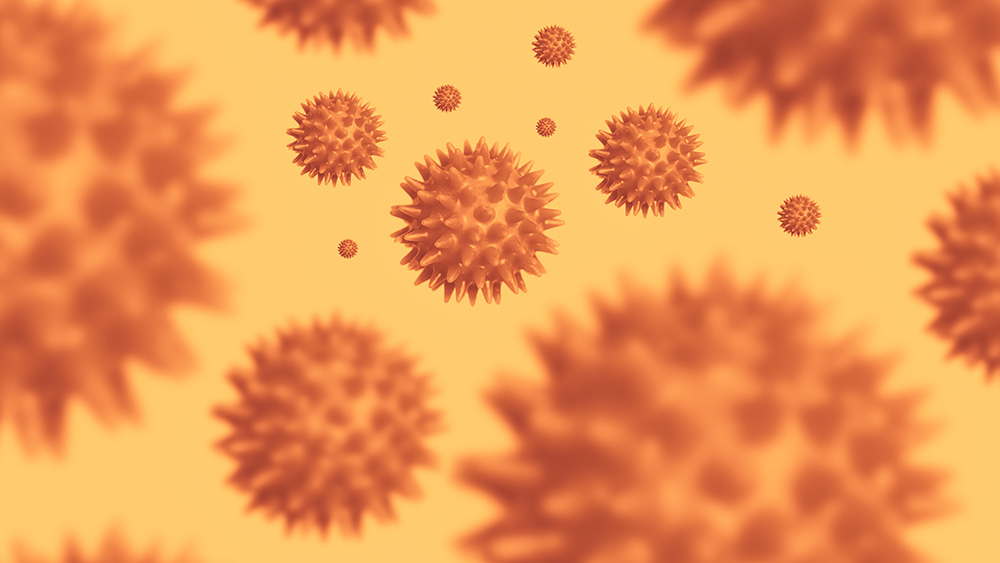10 Medicinal uses of black cumin seed essential oil
08/10/2022 / By Olivia Cook

Black cumin (Nigella sativa L.) is a nutrient-rich flowering herb that has its origins in Southeastern Asia. It is used in ancient Egypt, Greece, Middle East and Africa as a spice and food preservative.
Various traditional health systems use black cumin seed for different airway disorders like asthma, cough and bronchitis, chronic headache and back pain, skin disorders like eczema, neurological and mental illness, cardiovascular disorders, cancer, diabetes, paralysis, digestive tract-related disorders like diarrhea, inflammatory conditions, infertility and various infectious diseases due to bacterial, fungal, parasitic and viral infections. (Related: Black cumin: Healing people for thousands of years.)
Due to its faster absorption by the skin, black cumin seed essential oil is known to be more potent than the seeds themselves.
A study published in the Journal of Medicinal Plant Research reported several bioactive compounds from the seeds of N. sativa. Black cumin seed and its essential oil have about 40 different compounds, including trans-anethole, p-cymene limonene, carvone, thujene, thymoquinone, thymohyroquinone, dithymoquinone, carvacrol and beta-pinene. Major and minor amino acids identified include glutamate, arginine, cysteine and methionine.
According to a review published in the International Journal of Food Science and Technology, black cumin seed essential oil contains substantial amounts of protein, fiber, minerals (calcium, copper, iron, magnesium, manganese, phosphorus, potassium, sodium and zinc), vitamins A, E and C, as well as B-vitamins (thiamin, niacin, pyridoxine and folic acid).
Here are 10 of the top pharmacological uses of black cumin seed essential oil. (Related: Black cumin: The secret miracle heal-all remedy.)
Anticancer
According to a study published in the journal Drug Discovery Today, thymoquinone (TQ), the main active constituent of black cumin seed essential oil, plays a great role in affecting all 10 cancer hallmarks. These molecular and cellular traits include growth signal autonomy, insensitivity to growth inhibitory signals, evasion of apoptosis (a type of programmed cell death), reproductive potential not limited by telomeres, sustained angiogenesis, tissue invasion and metastasis, deregulated metabolic pathways, evasion of the immune system, chromosomal instability and inflammation.
Antioxidant
Black cumin is a source of natural antioxidants that lower the reactive oxygen species level while upregulating antioxidant enzymes. A study published in the journal Nutrients, identified a total of 19 polyphenols from the black cumin seeds. Of these, quercetin and kaempferol were reported to have the highest levels. Kaemferol supports the preventive oxidative damage of cells while quercetin supports bone health, lung health, cardiovascular system health and a healthy immune system function.
Antidiabetic
According to a publication that appeared in the International Journal of International Research and Public Health, all studies about the effects of black cumin seed essential oil on Type 2 diabetes reported positive effects. The parameters of hyperglycemia (high blood sugar) and diabetes control were improved with a reduction in fasting blood glucose and a significant rise in serum insulin. The findings further suggested that black cumin seed essential oil could be used as an adjuvant for oral antidiabetic drugs.
Antihypertensive
According to a study published in Evidence-based Complementary and Alternative Medicine: eCAM, black cumin seed essential oil and its active component, thymoquinone, exhibited a protective role in oxidative stress and hypertension. The cardiovascular protective effects of black cumin seed essential oil are associated with the presence of significant levels of sterols. Black cumin essential oil is an an effective natural agent in reducing the force of heart contractions; increasing urine output activity that helps rid your body of excess salt and water; and lowering blood cholesterol and supporting cardiovascular system health.
Anti-inflammatory
According to a study published in the journal Phytotherapy Research, both systemic and local administration of black cumin seed essential oil showed anti-inflammatory activity.
Neuroprotective
A study published in the journal CNS & Neurological Disorders Drug Targets cited black cumin seed essential oil as a promising natural remedy for the improvement of many neurological disorders, including depression. A study that appeared in the journal Phytotherapy Research showed the protective effects of black cumin and thymoquinone against neurodegenerative diseases, such as Alzheimer’s, Parkinson’s and multiple sclerosis. Black cumin seed essential oil has several properties that control or prevent seizures, reduce anxiety, relieve pain and support healthy cognitive function.
Anti-parasitic
According to a study published in the Pertanika Journal of Scholarly Research, black cumin seed essential oil has a strong biocidal effect against all stages of the parasite Schistosoma mansoni (in vitro) and an inhibitory effect on the egg-laying adult female worms.
Antimicrobial
A study published in the journal Novel Approaches in Drug Designing reported that thymoquinone obtained from black cumin seeds showed broader spectrum activities against multiple strains of gram-positive and gram-negative bacteria. It also inhibited biofilm formation.
Antifungal
According to a study published in the Avicenna Journal of Phytomedicine, black cumin essential oil has moderate in vitro and in vivo inhibitory activity against pathogenic yeasts, dermatophytes, non-dermatophytic filamentous fungi and aflatoxin-producing fungi. The main morphological changes of pathogenic and toxigenic fungi treated with black cumin essential oil were observed in the cell wall, plasma membrane and membranous organelles, particularly in the nuclei and mitochondria.
Immunostimulant
According to a study published in the journal International Immunopharmacology, black cumin seed essential oil has immunostimulatory effects in various inflammatory and immunologic diseases, such as experimental allergic or autoimmune encephalomyelitis (an animal model of brain inflammation), colitis (swelling of the large intestines) and arthritis (inflammation and tenderness of one or more joints).
Watch the video below about the health benefits of black cumin seed oil.
This video is from the Natural News channel at Brighteon.com.
More related stories:
Black cumin seed oil can help reduce disease-causing inflammation.
Scientists study the many medicinal uses of black cumin seed (Nigella sativa).
Combining honey with black cumin helps COVID patients: research.
Sources include:
Submit a correction >>
Tagged Under:
alternative medicine, anti-diabetes, anti-inflammatory, anticancer, antioxidant, black cumin seed, brain health, essential oil, food is medicine, heart health, immune system, natural antibiotics, natural health, natural medicine, remedies
This article may contain statements that reflect the opinion of the author



















